The Clinical Nurse Specialist (CNS) is an advanced practice nursing role focused on improving patient outcomes and healthcare delivery. CNSs are in high demand across the United States. According to the U.S. Bureau of Labor Statistics (BLS), overall employment of advanced practice registered nurses (APRNs) – a category that includes CNSs – is projected to grow 40% from 2023 to 2033.
In 2023, there were about 349,600 APRN jobs nationally; by 2033 this is expected to increase by roughly 141,200 positions. This rapid growth (much faster than average) reflects a rising need for specialized nursing expertise as the population ages and healthcare becomes more complex.
CNSs play a vital role in filling this gap, providing expert clinical care and leading improvements in health systems. In fact, research has linked CNS practice to reduced hospital costs and lengths of stay, fewer ER visits, and improved patient outcomes – making these nurses highly valuable to employers. The National Association of Clinical Nurse Specialists (NACNS) reports there are over 70,000 CNSs working across U.S. hospitals, clinics, and other settings today. The combination of demonstrated impact on quality of care and growing healthcare needs has made the CNS role more in-demand than ever.
What Is a Clinical Nurse Specialist?
A Clinical Nurse Specialist (CNS) is a master’s or doctoral-prepared registered nurse who has advanced expertise in a specialized area of nursing practice. As one of the four APRN roles (alongside nurse practitioners, nurse anesthetists, and nurse midwives), a CNS is educated beyond the level of a registered nurse in a specific population (such as adult-gerontology, pediatrics, or mental health) or clinical domain (such as oncology or critical care).
The CNS role is often described as integrating care across three spheres of influence – the patient, nursing personnel, and healthcare system – with the primary goal of continuously improving patient outcomes and nursing care. In practical terms, that means a CNS not only provides direct patient care in their specialty but also functions as a clinical leader, guiding nurses and collaborating with other providers to enhance care processes.
“The Clinical Nurse Specialist brings a distinct set of skills and expertise that extends beyond direct patient care, including system-level interventions, evidence-based practice improvements, and enhancing nursing practice across entire institutions.”
Scope of practice and autonomy
CNSs are licensed as APRNs, which grants them a high level of clinical autonomy in their specialty. They perform advanced health assessments, diagnose health problems, develop and implement treatment plans, and often manage complex patient cases in collaboration with physicians and other providers. Like nurse practitioners, many CNSs can prescribe medications and therapies depending on state laws.
In some states, CNSs have independent or full practice authority, including prescribing privileges, while other states require a physician agreement or restrict CNS prescribing. (For example, CNSs can prescribe medications in only about 19 states as of recent counts, though they provide advanced clinical care in all states.)
Compared to Nurse Practitioners (who typically serve as primary care providers focusing on diagnosing and treating individual patients), Clinical Nurse Specialists often spend more time on indirect care activities – such as consulting on complex cases, educating nursing staff, leading quality improvement initiatives, and implementing evidence-based practices within their organizations.
However, CNSs do continue to provide direct patient care within their specialty. For instance, a CNS in cardiology might personally manage a caseload of cardiac patients, especially those with complex needs, while also advising bedside nurses and spearheading a hospital’s heart failure reduction program. As the American Nurses Association notes, the CNS is a distinct APRN occupation that has a long-standing role in advanced nursing practice. In summary, Clinical Nurse Specialists are clinical experts, educators, consultants, and change agents all in one – they bridge the gap between bedside nursing and the wider healthcare system.
CNSs are recognized for their broad impact. The American Association of Colleges of Nursing (AACN) emphasizes that CNSs are “experts in evidence-based nursing” who engage in direct care as well as “teaching, mentoring, consulting, research, management, and systems improvement.” These clinicians often specialize in areas like oncology, pediatrics, geriatrics, psychiatric/mental health, adult health, acute/critical care, and community health. In essence, a Clinical Nurse Specialist is an advanced practice nurse who elevates nursing practice and patient care standards within a focused field, bringing a blend of clinical mastery and leadership that differentiates the role from other nursing careers.
How to Become a Clinical Nurse Specialist
Becoming a Clinical Nurse Specialist involves several steps of education, licensure, and experience. In general, you must first become a registered nurse, then obtain advanced graduate training and certification in a CNS specialty. Below is an overview of the typical pathway:
1. Earn an RN license (BSN degree)
First, you’ll need to complete a nursing program and become a licensed Registered Nurse. Most aspiring CNSs earn a Bachelor of Science in Nursing (BSN) as their entry degree. A BSN program usually takes ~4 years. (Some nurses enter practice with an associate degree or diploma and later complete a BSN bridge program). After schooling, you must pass the NCLEX-RN exam to obtain your RN license. Tip: Strong academic performance is important – many graduate CNS programs prefer a GPA ≥ 3.0 and solid undergraduate science coursework.
2. Gain clinical nursing experience
Working as an RN is crucial to build real-world skills. CNS graduate programs often require or strongly recommend 1–3 years of RN experience in a relevant clinical specialty. For example, if you aim to be an oncology CNS, spending a couple of years as an RN on an oncology unit will provide valuable foundational expertise. Hands-on experience helps you develop advanced assessment skills and decide on a specialty focus for your CNS role.
| Stage | Typical Duration | Milestones & Requirements |
|---|---|---|
| RN Education & Licensure | ~4 years (BSN program)or 2–3 years (ADN then bridge) | – Complete a nursing degree (BSN preferred).– Pass NCLEX-RN exam to obtain RN license. |
| Clinical RN Experience | 1–3 years (varies) | – Work as an RN in chosen field to build expertise.– Develop foundational clinical and critical thinking skills. |
| Graduate CNS Program | 2–3 years (MSN full-time)3–4+ years (DNP or part-time) | – Complete graduate coursework and clinical hours in CNS specialty.– Graduate with MSN or DNP in advanced nursing practice. |
| National Certification | 1–3 months (exam prep and scheduling) | – Apply and sit for CNS board certification exam (e.g., ANCC, AACN).– Pass exam to earn CNS-BC credential in your specialty. |
| State APRN Licensure | ~1–3 months (application processing) | – Submit licensure application to state Board of Nursing.– Obtain state license/recognition as a Clinical Nurse Specialist (APRN). |
| Continuing Education | Ongoing (career-long) | – Fulfill CE credits and practice hours for renewal cycles.– Renew CNS certification (every 5 years) and APRN license (per state schedule). |
3. Complete a graduate CNS program
Next, enroll in an accredited graduate nursing program to prepare as a Clinical Nurse Specialist. This may be a Master of Science in Nursing (MSN) or a Doctor of Nursing Practice (DNP) program with a CNS track. Full-time MSN programs typically take about 2 years, whereas a DNP can take 3+ years. You will choose a population or specialty focus (e.g., Adult-Gerontology CNS, Pediatric CNS, etc.). Graduate coursework includes advanced physiology/pathophysiology, pharmacology, health assessment, and extensive clinical practice hours in your specialty. Most CNS programs incorporate around 500+ clinical hours (often more for DNP). Graduating from a CNS program makes you eligible to sit for national certification.
4. Obtain CNS certification
After earning your degree, you must pass a national certification exam for Clinical Nurse Specialists. Several organizations offer CNS certifications by specialty. A common route is the American Nurses Credentialing Center (ANCC) exams (for example, Adult-Gerontology CNS, which grants the AGCNS-BC credential). The American Association of Critical-Care Nurses (AACN) Certification Corporation offers CNS exams for acute/critical care in adult, pediatric, and neonatal specialties. You’ll choose the exam that matches your population focus. These exams are rigorous standardized tests of your advanced clinical knowledge. Once you pass, you become a Board-Certified Clinical Nurse Specialist in that area. Many graduates take the exam within weeks to a few months after finishing their program. Certification validates your expertise and is required for APRN licensure in most states.
5. Apply for state APRN licensure as a CNS
With your national certification in hand, you can seek licensure from your state Board of Nursing to practice as an Advanced Practice Registered Nurse. Requirements vary, but generally you’ll submit an application, proof of your CNS certification, your graduate transcripts, RN license info, and a fee. You may also need a background check or fingerprinting. The state will grant you a license/registration as a CNS (APRN) in your population focus. This license is in addition to your RN license. In some states, CNSs are licensed under the category of “Clinical Nurse Specialist”; others might license all APRNs under a combined “APRN” designation. Note: If your state has prescriptive authority for CNSs, you may need to apply for a separate prescriber ID or collaborative agreement at this stage.
6. Maintain certification and continuing education.
Becoming a CNS is an ongoing commitment. You’ll need to renew your CNS certification typically every 5 years (requirements differ by certifying body) and renew your state APRN license (usually every 1–2 years, coinciding with RN license renewal). Renewal involves completing continuing education (CE) credits and sometimes logging practice hours. For example, a CNS might need 75 CE hours every 5 years for ANCC renewal, including some hours specific to their specialty and evidence-based practice. Many CNSs also maintain additional certifications (like CCRN, CEN, etc., if relevant to their role). Lifelong learning is essential to keep up with advances in clinical practice. Employers often provide support for continuing education, and professional organizations offer CE opportunities. Staying active in CNS associations (like NACNS or specialty nursing groups) can help you access resources to fulfill your education and renewal needs.
Some individuals pursue a DNP (Doctorate) soon after their MSN or enter an RN-to-MSN accelerated program, which can alter the timeline. The above path assumes a traditional route. By around 6-8 years post-high school (for MSN-prepared CNS) or ~10 years (for DNP-prepared CNS), one can be fully licensed and practicing as a Clinical Nurse Specialist.
How Much Does It Cost to Become a CNS
Advancing to a Clinical Nurse Specialist can be a significant financial investment. It’s important to plan for education, exam, and licensure costs that you’ll incur on the journey. Here’s a breakdown of typical costs:
Tuition Fees
The largest expense is graduate tuition for an MSN or DNP program. Costs vary widely. Public in-state universities or online programs might charge lower tuition, whereas private schools cost more. According to the National Center for Education Statistics, the total MSN program cost ranges from about $28,000 up to $79,000 (including tuition, fees, and living expenses). A DNP program can be on the higher end (sometimes reaching $80–100k at private institutions). Many students offset costs via financial aid, loans, or employer tuition assistance.
Certification Exam Fees
After graduation, you’ll pay for the CNS certification exam. These exam fees are relatively modest compared to tuition. Certification exams typically cost ~$300–$400. For example, the ANCC Adult-Gerontology CNS exam is about $395 (with discounts bringing it to ~$295 for ANA or NACNS members). Budget a few hundred dollars for board exam registration.
| Expense Category | Estimated Cost (Low) | Estimated Cost (High) |
|---|---|---|
| Graduate Degree Tuition (MSN or DNP program) | ~$30,000 (in-state MSN) | ~$80,000 (private or doctoral program) |
| Certification Exam (initial CNS board exam) | ~$250 (with member discounts) | ~$400 (standard fee for non-members) |
| State Licensure Fees (APRN application & licensing) | ~$100 (some states’ applications) | ~$300+ (includes various state fees and background checks) |
| Continuing Education & Renewals (ongoing) | ~$0–$200/year (if utilizing free CE & employer support) | ~$500/year (if attending conferences or multiple paid courses) |
Licensure and Application Fees
Obtaining and maintaining your licenses involves various fees. State APRN licensure application fees range roughly from $100 to $300, depending on the state (each Board of Nursing sets its own fees). There may be additional costs for a criminal background check or jurisprudence exam where required. RN license renewal fees (if separate) can be $50–$150 every couple of years, and some states charge for APRN renewals as well. It’s wise to allocate a few hundred dollars across your licensing process and renewals.
Continuing Education and Renewal Costs
To keep your CNS certification and license active, you’ll engage in continuing education. Some employers provide free in-house training or reimburse CE courses. If not, you might spend money on conference registrations, online CE modules, or professional memberships that provide free CE. Certification renewal with ANCC or other bodies every 5 years often costs a renewal fee (~$200–$350). License renewals also have fees (e.g., $100+ per renewal period). In total, CNSs might spend a few hundred dollars per year on CE and professional development, though this varies. Savvy CNSs use low-cost or employer-sponsored CE options to minimize expenses.
Becoming a CNS doesn’t have to break the bank. Many nurses reduce costs by applying for scholarships and grants – numerous nursing organizations (e.g., AACN, ANA) offer scholarships for graduate study. Taking advantage of employer tuition reimbursement is another big help (some hospitals pay a portion of MSN tuition if you commit to working for them after graduation).
You can also compare programs for affordability: online or in-state university programs are often cheaper than private schools. To save on certification, consider joining a professional association like ANA or NACNS before you apply for the exam – membership can yield exam fee discounts of $40–$100. For continuing education, seek out free CEU offerings (many associations provide free CE courses to members, and journals often have free CE quizzes).
Also, keep all your licensing and certification documents organized; avoiding late fees or lapsed license penalties will save money and stress. With planning and available resources (scholarships, employer support, tax deductions for education), you can make the investment in becoming a CNS more manageable.
What Do Clinical Nurse Specialists Do?
Clinical Nurse Specialists are expert clinicians who wear many hats in healthcare settings. A CNS’s daily work blends advanced patient care with consultation, education, and leadership. While specific duties vary by specialty and job setting, below are common roles and responsibilities of a CNS:
Advanced Clinical Care
CNS conduct comprehensive assessments of patients within their specialty, formulate diagnoses, and develop treatment plans. CNSs often handle complex or high-risk cases in their unit. They may perform specialized procedures (within scope) and coordinate care for patients with intricate needs. For example, a pulmonary CNS might manage care for patients with severe COPD or ventilator dependency, adjusting treatment plans in collaboration with physicians.
Diagnosing and treating illness is part of the CNS role – they are qualified to order diagnostic tests, interpret results, and modify treatments as needed. Many CNSs also prescribe medications or therapies if their state permits. In essence, a CNS provides the caliber of direct care similar to a nurse practitioner or physician within their specialized realm.
Nursing Leadership & Consultation
CNSs serve as leaders and clinical consultants to nursing staff and other team members. They round on units to monitor clinical care, identify opportunities for improvement, and assist with challenging patient cases. A CNS might advise bedside nurses on a nuanced patient situation (for instance, managing a rare surgical complication or difficult symptom management problem). They often lead interdisciplinary rounds or case conferences for complex cases. As subject matter experts, CNSs update protocols and ensure that frontline nurses have the knowledge and resources to provide excellent care. They also mentor new nurses and help educate staff on the latest practices. A CNS essentially acts as the “go-to” clinical authority in their area of specialization, elevating the practice of the entire nursing team.
Education of Patients and Families
Patient education is another key responsibility. CNSs spend time directly counseling patients and their families, especially those dealing with complicated health conditions. They explain diagnoses, answer questions about treatments, and help develop strategies that patients can use to manage illnesses at home. For example, an oncology CNS might conduct bedside teaching for a patient starting chemotherapy and their caregiver – covering medication side effects, dietary considerations, symptom reporting, etc. CNSs often create or select patient education materials and ensure information is understandable. By empowering patients with knowledge, CNSs improve compliance with treatment plans and overall patient satisfaction.
Evidence-Based Practice & Research
Improving care quality is at the heart of the CNS role. These nurses interpret and apply research in clinical settings – known as evidence-based practice (EBP). A CNS stays up-to-date on the latest research findings in their specialty and works to integrate those findings into hospital policies and bedside care. They might lead quality improvement projects (for example, implementing a new fall-prevention protocol or reducing infection rates in the ICU based on evidence). Some CNSs also participate in or conduct clinical research studies. They track outcomes data, evaluate the effectiveness of interventions, and adjust practices accordingly. By serving as an EBP champion, the CNS ensures that patient care is grounded in the best available evidence, which leads to better outcomes and cost savings.
Administrative and System Leadership
Many CNSs hold formal or informal leadership positions within their organizations. They might chair committees on patient safety, contribute to developing hospital-wide clinical guidelines, or assist management in planning services. CNSs often develop and revise policies to improve care delivery (for instance, creating a sepsis management protocol or standardizing pain management practices across units). They may also be involved in budgeting or evaluating new products/technology for their specialty unit. In essence, a CNS looks beyond individual patients to the system level – identifying trends, solving system problems that hinder optimal care, and leading initiatives that enhance efficiency and safety across the board. For example, a CNS might notice an increase in pressure ulcers hospital-wide and lead a task force to address staffing, supplies, and training to reduce those rates. This systems thinking role distinguishes CNSs from many other clinicians.
Scope-of-practice variations
It’s important to note that what a CNS can do independently may differ by state (and sometimes by employer policy). In some states, CNSs have full practice authority, meaning they can evaluate patients, diagnose, and initiate treatments (including prescribing certain medications) without physician oversight – similar to nurse practitioners.
Other states have reduced or restricted practice, where CNSs might need a collaborative agreement with a physician to prescribe or may not have prescriptive authority at all. For instance, a CNS in Ohio can assess and manage patient care but cannot prescribe medications, whereas a CNS in New Mexico has broad prescriptive authority. Despite these regulatory differences, all CNSs provide advanced nursing care and coordinate closely with physicians and the healthcare team. They tend to work in acute care and hospital environments more than NPs (who often work in clinics), but CNS roles exist in outpatient and community settings too.
Regardless of setting, a CNS functions as a clinical leader driving high-quality care. As one source sums up, many CNSs “continue to both diagnose and treat patients” as part of their practice, while also leading policy and nursing standards improvements. This dual focus on individual patient care and broader system improvements is the hallmark of the Clinical Nurse Specialist role.
How Much do Clinical Nurse Specialists Earn?
Pursuing a CNS career offers not only professional fulfillment but also competitive compensation. Because Clinical Nurse Specialists are APRNs with graduate degrees, their salaries are significantly higher than those of bedside RNs.
National Average Salary
Nationally, CNSs (grouped with nurse practitioners in salary data) earn a median annual salary around $125,000–$130,000. The U.S. BLS reports that the median pay for nurse practitioners, nurse anesthetists, and nurse midwives was $132,050 per year as of May 2024. This figure includes all APRNs; nurse practitioners (including CNSs) specifically have a similar median in the low-$130k range. By comparison, the median staff RN salary is about $81,000 (per BLS 2022), highlighting the jump in earnings that comes with the CNS’s advanced training and responsibilities.
Salary Per State
However, salaries vary widely by state and specialty. In general, states with higher cost of living or greater demand for APRNs pay more. For example, a CNS or NP in California earns one of the highest wages in the nation – the average salary for nurse practitioners in California is about $158,000 per year. In contrast, a CNS/NP in a lower-paying region like Tennessee earns around $99,000 per year on average. Geographic differences can be stark: the top 10% of earners in high-paying states can make well over $170k annually, while those in lower-paying states might start in the $80k–$90k range. Experience and subspecialty also influence pay; an experienced CNS in an in-demand field (like acute care or oncology) may command a premium.
The table below illustrates NP/CNS salary ranges in five example states to show high, mid, and lower-end markets (figures include nurse practitioner data as a proxy, since CNS-specific data is often combined with NP):
| State | Lower Range (Entry-Level) | Average Salary | Upper Range (Experienced) |
|---|---|---|---|
| California – High-cost, high-demand state (West Coast) | ~$120,000/year (10th percentile) | ~$158,000/year (median NP salary) | ~$200,000/year (90th percentile) |
| Massachusetts – Another high-paying state (New England) | ~$105,000/year (entry) | ~$139,000/year (average NP salary) | ~$175,000/year (experienced) |
| Texas – Moderate cost, large state (South Central) | ~$80,000/year (entry) | ~$125,000/year (average NP salary) | ~$160,000/year (experienced) |
| Florida – Lower cost, high supply state (Southeast) | ~$75,000/year (entry) | ~$110,000/year (average NP salary) | ~$135,000/year (experienced) |
| Tennessee – Lower-paying state (South) | ~$70,000/year (entry) | ~$99,000/year (average NP salary) | ~$130,000/year (experienced) |
As shown, location has a big impact – California APRNs earn roughly 50% more than Florida or Tennessee APRNs on average. Urban vs. rural differences within states can also affect pay (metropolitan areas tend to pay higher). Additionally, certain specialties might offer higher salaries due to demand; for instance, an Acute Care CNS in a busy ICU or a CNS in a specialized surgical department may earn above the general median, especially if they take on additional on-call shifts or administrative duties.
Job Outlook and Demand
Beyond salary, the job outlook for Clinical Nurse Specialists is excellent. The growing need for healthcare services and the drive to improve quality are fueling demand for CNS expertise. BLS projections (which group CNS roles under APRNs) predict a 40% increase in APRN employment from 2023 to 2033. This is exceptionally high growth compared to the average occupation (for context, overall job growth is ~4% and healthcare practitioner jobs ~9% in the same period).
In numeric terms, about 141,000 new advanced practice nursing jobs are expected to be created over the decade. While nurse practitioners will account for many of these positions (particularly in primary care), Clinical Nurse Specialists are also poised to benefit from the expansion. Hospitals and health systems are increasingly recognizing the value of CNSs in leading quality improvement and managing the care of complex patient populations.
Another factor in job outlook: as states continue to modernize laws to give APRNs fuller scope of practice, CNS roles may expand in settings like outpatient clinics, home health, and community health programs. In some regions, CNSs are being utilized to help fill physician gaps in specialty care and to implement population health initiatives.
The NACNS has actively advocated for recognizing CNSs as essential providers (for example, pushing for CNSs to be included in things like Medicare’s definition of “clinical nurse specialist” for reimbursement). All these trends indicate robust opportunities for CNSs. New CNS graduates will find the most openings in acute care hospitals, specialty clinics, and large health systems – particularly those focused on chronic disease management, geriatrics, and preventive care (areas with growing patient loads). Regions with many Magnet-designated hospitals or academic medical centers are also big employers of CNSs, as those institutions emphasize advanced practice roles to improve nursing practice.
A career as a Clinical Nurse Specialist promises a strong job market and financial rewards. With a six-figure salary common in most states and demand only projected to increase, CNSs can expect both economic stability and the chance to shape the future of healthcare in their areas of expertise.
Specializations & Subspecialties
Clinical Nurse Specialists can focus on a wide array of specialty areas in nursing. When preparing to become a CNS, nurses choose a primary specialty or population focus as part of their graduate program (this aligns with their certification). Major CNS specialties typically correspond to patient populations or settings of care. Some of the primary CNS specialty areas include:
Adult-Gerontology CNS
Focuses on adult and older adult patients. This broad specialty can further be split into sub-areas like acute care (hospitalized adults with complex conditions) or primary care (managing chronic illnesses in adults). Adult-Gerontology CNSs (AG-CNS) often work in med-surg units, ICUs, geriatric services, palliative care, and similar settings, leading care for adult populations across the continuum.
Pediatric CNS
Centers on infants, children, and adolescents. Pediatric CNSs might work in children’s hospitals or pediatric departments, managing care for young patients. They often focus on areas like pediatric critical care, general pediatrics, or a particular pediatric subspecialty (e.g., pediatric oncology or neonatology).
Neonatal CNS
Specializes in the care of newborns, particularly high-risk or critically ill neonates. Neonatal CNSs usually practice in Neonatal Intensive Care Units (NICUs) and coordinate care for premature infants or newborns with acute conditions. This role requires in-depth knowledge of neonatal physiology and family support.
Psychiatric/Mental Health CNS
Concentrates on mental health populations. Psych/Mental Health CNSs provide advanced nursing care in behavioral health settings – such as psychiatric hospitals, outpatient mental health clinics, or community mental health programs. They may specialize in areas like adult psychiatry, child/adolescent mental health, or substance abuse. (Note: In recent years, the Psychiatric CNS role in some areas has evolved or been supplanted by Psychiatric Nurse Practitioners, but PMH-CNSs still exist and contribute importantly to mental healthcare and system improvements in psych settings.)
Community/Public Health CNS
Focuses on community health and disease prevention. These CNSs might work with public health departments or community programs, managing population-level interventions, leading public health nursing teams, and developing programs for health promotion and disease prevention in communities.
Critical Care/Acute Care CNS
Although “critical care” is more of a setting than a population, many Adult or Pediatric CNSs further specialize in acute and critical care environments. For example, an Adult-Gerontology Acute Care CNS might concentrate on ICU or ER patients. (The AACN offers acute/critical care CNS certifications reflecting this focus.) These CNSs are experts in managing acutely ill patients and often spearhead ICU protocols, rapid response systems, and emergency care improvements.
Oncology CNS
Specializes in cancer care. Oncology CNSs work in oncology units, infusion centers, or cancer institutes, focusing on patients with cancer. They manage complex symptoms, coordinate multidisciplinary cancer care, educate both patients and nurses on oncology best practices, and often engage in research trials or survivorship programs. (Oncology is sometimes considered a subspecialty of adult health, but many CNSs devote their careers entirely to oncology nursing.)
Other primary CNS specialties or population foci may include Women’s Health, Maternal-Child Health, Rehabilitation, Perioperative (Surgical) Care, and more. The key is that a CNS’s primary certification defines a broad area of practice. Within those broad specialties, there are numerous subspecialties a CNS might pursue based on interest or workplace needs.
Common CNS Subspecialties
Beyond the primary specialties, Clinical Nurse Specialists often develop subspecialized expertise in particular clinical niches or disease groups. Subspecialties are usually narrower fields or specific patient care domains where a CNS can become the go-to expert. Many CNS subspecialties do not have separate formal certifications (aside from maybe optional certification in that niche), but they are recognized focuses in practice. Below is a chart of example CNS subspecialties, with a description of their focus, typical work settings, and any extra training or certification that may be relevant:
| CNS Subspecialty | Focus & Key Responsibilities | Typical Work Settings | Extra Training/Certifications |
|---|---|---|---|
| Oncology CNS | Focuses on patients with cancer. Manages complex cancer care, such as coordinating chemotherapy treatment plans, managing symptoms (pain, nausea), and guiding nurses in oncology best practices. CNS leads oncology nursing education and survivorship programs, and often participates in research trials. | – Oncology units in hospitals– Outpatient cancer centers – Infusion clinics – Hospice and palliative care related to oncology | – Oncology Nursing Society (ONS) membership provides resources. – Can obtain Oncology Nursing Certification (e.g., Advanced Oncology Certified Nurse credential via ONCC). |
| Cardiac (Cardiovascular) CNS | Specializes in heart and vascular health. Manages care for patients with cardiac conditions (heart failure, CAD, post-MI, etc.). Develops heart failure management programs, chest pain protocols, and rehab plans. Educates staff on cardiac monitoring, advanced cardiac life support, etc., and works with cardiologists on quality improvement (e.g., reducing readmissions). | – Cardiac units (CCU), telemetry floors – Cardiac catheterization labs – Heart failure clinics – Cardiovascular surgery units | – May earn Cardiac-Vascular Nursing Certification (ANCC) as an added credential. – Advanced Cardiac Life Support (ACLS) instructor certification is common. |
| Critical Care CNS | Concentrates on critically ill patients in ICU/ER settings. Provides expert oversight of ICU patient care, including ventilator management, sepsis treatment, and emergency interventions. Leads ICU rounds, rapid response teams, and code blue reviews. Trains staff in critical care procedures and updates protocols for sedation, hemodynamics, infection control, etc. Essentially the clinical backbone of the ICU team, ensuring evidence-based critical care. | – Intensive Care Units (medical, surgical, neuro ICU, etc.) – Emergency Departments (as a resource person or trauma CNS) – Critical Care transport teams or step-down units | – AACN’s Acute/Critical Care CNS certification (ACCNS) for Adult, Pediatric, or Neonatal populations. – May hold CCRN (Critical Care RN) certification (for additional credibility in ICU nursing). |
| Palliative Care/Hospice CNS | Specializes in patients with serious illnesses requiring symptom management and end-of-life care. Focuses on pain and symptom control, advanced care planning discussions, and coordinating hospice services. Guides teams on ethical issues and communication with patients/families about goals of care. A palliative CNS often develops protocols to improve comfort care and educates nurses on topics like pain pharmacology and psychosocial support. | – Palliative care consultation teams in hospitals – Inpatient hospice or palliative units – Home hospice programs – Oncology or critical care units (as palliative resource) | – Certification such as Advanced Certified Hospice and Palliative Nurse (ACHPN) through HPCC (Hospice & Palliative Credentialing Center) is available for APRNs. – Membership in Hospice and Palliative Nurses Association (HPNA) provides ongoing education. |
| Wound/Ostomy CNS | Focuses on wound management, ostomy care, and continence. Manages treatment of complex wounds (pressure injuries, diabetic ulcers, surgical wounds), selects advanced wound care products, and may perform wound debridement if trained. Oversees care of patients with ostomies (e.g., colostomy, urostomy), including patient education on stoma care. Develops hospital-wide skin and wound care protocols and consults on difficult-to-heal wounds to improve outcomes. | – Hospitals (as wound care CNS or part of an interprofessional wound team) – Long-term care or rehab facilities (where chronic wound prevalence is high) – Outpatient wound care clinics – Home health (as a consultant for home-bound patients with wounds/ostomies) | – Certification as a Wound Ostomy Continence Nurse (WOCN) is highly relevant (WOCN Society offers certifications for RNs; an APRN can also become certified in wound, ostomy, and continence care). – Additional training courses in wound management (e.g., wound care specialty education programs). |
These are just a few examples among many CNS subspecialties. Clinical Nurse Specialists also carve out niches in areas like diabetes management (e.g., Diabetes CNS who is also a Certified Diabetes Care and Education Specialist), infectious disease (antimicrobial stewardship programs and infection prevention), perioperative care (surgical CNS focusing on OR and recovery improvements), neuroscience (stroke or neuro CNS), maternal-newborn (perinatal CNS focusing on OB/neonatal care continuity), and more. Essentially, if there’s a complex area of patient care, a CNS can specialize in it. Often, CNS subspecialization is driven by the needs of the healthcare institution – a hospital might create a CNS role specifically to tackle a high-priority issue (like a “falls prevention CNS” or a “pain management CNS”). CNSs will frequently obtain additional certifications or training pertinent to their subspecialty, as noted, to demonstrate expertise and stay current.
It’s also worth noting that CNS specializations are fluid. A CNS might start in one specialty (say, adult critical care), and later transition into a related area (like cardiology or palliative care) by leveraging their broad clinical skills and gaining new knowledge. The advanced education of a CNS (master’s or doctoral level) provides a strong foundation in systems thinking and clinical leadership, which can be applied across different specialties with some additional training. This flexibility is a strength of the CNS role – as healthcare evolves, CNSs can adapt and lead in emerging areas (such as telehealth, geriatric psychiatry, etc.).
Clinical Nurse Specialist Professional Organizations & Resources
Joining professional organizations is an excellent way for CNSs (and those aspiring to be one) to network, continue learning, and advocate for their role. Below is a selection of national organizations and specialty groups relevant to Clinical Nurse Specialists, along with their membership reach and member benefits:
| Organization & Year Founded | Membership/Reach | Member Benefits |
|---|---|---|
| National Association of Clinical Nurse Specialists (NACNS) (founded 1995) | ~2,000 members; represents 70,000+ CNSs nationwide. (U.S.-based, membership open to CNSs and students.) | – Advocacy: NACNS is the voice of CNSs in Washington, working to expand APRN scope and reimbursement for CNSs. – Education & Resources: Annual NACNS conference, webinars, and publications specific to CNS practice (e.g., Clinical Nurse Specialist journal access). – Networking: Connect with CNS peers across specialties; online member communities and mentorship opportunities. – Professional Growth: Continuing education credits, CNS certification discounts (NACNS members often get discounts on ANCC exam fees), and leadership opportunities through committees. |
| American Nurses Association (ANA) (founded 1896) | ~4 million RNs represented (the ANA speaks for the interests of all registered nurses in the U.S.). (Membership is estimated in the tens of thousands; includes RNs of all roles, including APRNs like CNSs.) | – Publications & Standards: Free/subsidized access to ANA’s Nursing Scope & Standards, ANA Journals, and American Nurse magazine. – Continuing Education: Dozens of free or discounted CE modules for members; ANA’s online education portal covers clinical, leadership, and specialty topics. – Advocacy: Active lobbying on issues like safe staffing, APRN full practice authority, and healthcare reform. Members receive updates and can participate in grassroots advocacy. – Member Savings: Discounts on certification exams (e.g., ANCC CNS exam), conferences, insurance, and products. Also, networking via ANA state chapters and specialty affiliate organizations. |
| American Association of Critical-Care Nurses (AACN) (founded 1969) | ~130,000 members (world’s largest specialty nursing organization). Primarily U.S. but with international members; includes ICU/critical care nurses at all levels (RN, APRN, CNS, NP). | – Certifications: AACN administers CCRN, PCCN, ACCNS, and other certifications. Members get study resources and exam discounts. – Education & Events: Free online CE courses for members focusing on ICU topics; access to AACN’s annual NTI conference (largest critical care conference) at reduced rate; local chapters offer educational workshops. – Publications: Subscription to American Journal of Critical Care and Critical Care Nurse journals; monthly newsletters with practice updates. – Community: Networking through local AACN chapters, volunteer opportunities, and online discussion boards (Clinical voices in AACN’s forums). AACN also has a mentorship program and leadership development for members. |
| Oncology Nursing Society (ONS) (founded 1975) | >35,000 members worldwide. Members include oncology nurses across roles (staff nurses, CNSs, NPs, researchers, etc.), mostly in the U.S. | – Educational Resources: ONS offers extensive oncology-focused education: online courses, case studies, and the renowned ONS Congress conference. Members get discounted/free access to these learning opportunities. – Certification Support: ONS works closely with ONCC (Oncology Nursing Certification Corp). Members get discounts on oncology certification exams and prep materials. ONS also provides chemotherapy/biotherapy provider courses. – Publications: Subscription to Oncology Nursing Forum and Clinical Journal of Oncology Nursing – leading journals with the latest in oncology nursing practice and research. – Networking & Communities: Special Interest Groups (SIGs) for specific cancers or care issues (e.g., Radiation Therapy SIG, Pediatric Oncology SIG) where CNSs can exchange knowledge. Local ONS chapters for in-person networking. ONS also has mentorship programs and leadership opportunities on a national level (committees, task forces). |
In addition to the above, CNSs should consider joining organizations related to their particular specialty. For example, a CNS in pediatrics might engage with the Society of Pediatric Nurses (SPN); a mental health CNS could join the American Psychiatric Nurses Association (APNA); a wound care CNS might get involved with the Wound, Ostomy and Continence Nurses Society (WOCN), and so on. These groups provide targeted resources that can be invaluable for clinical updates and professional support in that subspecialty. Many offer reduced membership rates for students or new graduates, which can be a great way to start networking early in your CNS career.
Skills & Qualities for Success
Becoming an effective Clinical Nurse Specialist requires more than degrees and certifications – it calls for a blend of advanced clinical skills and personal attributes. As one career expert put it, a CNS role demands “a combination of leadership and high-level patient care skills” in a specialty area. Below are key skills and qualities that successful CNSs typically possess:
Advanced Clinical Expertise
First and foremost, a CNS must have exceptional clinical knowledge and skills in their specialty. This means a deep understanding of pathophysiology, advanced assessment abilities, and proficiency in specialized procedures or treatments. CNSs are often the clinical experts that others turn to for difficult cases, so being able to quickly synthesize patient data, identify problems, and formulate interventions is crucial. Strong critical thinking and problem-solving skills at the bedside define the CNS’s value.
Leadership & Mentorship
CNSs are leaders in their environment, even if they don’t have a formal management title. They need the ability to inspire and guide other nurses and team members. This includes being comfortable coaching others, providing constructive feedback, and leading by example in delivering evidence-based care. Effective CNSs often mentor new nurses, lead education sessions, and head quality improvement teams. Leadership also means advocating for nursing staff needs and influencing organizational policy – all requiring confidence and the ability to navigate team dynamics.
Communication & Collaboration
Highly developed communication skills are essential. A CNS must communicate clearly with a variety of stakeholders: instructing nurses at the bedside, discussing care plans with physicians, educating patients and families, and briefing administrators on outcomes and recommendations. The ability to collaborate within interprofessional teams is equally important – CNSs work with doctors, pharmacists, therapists, social workers, and others to coordinate care. Listening actively, negotiating diplomatically, and serving as a liaison between nursing and other departments are day-to-day parts of the job. In tense situations (like a rapid response or a family meeting about end-of-life care), a CNS’s communication prowess helps ensure everyone is on the same page.
Education & Teaching Skills
Acting as an educator is a core function of the CNS role. Whether it’s conducting a quick in-service training on a new dialysis machine or planning a full workshop on diabetes management, a CNS must be able to teach effectively. This involves understanding adult learning principles, being patient and approachable, and tailoring teaching methods to the audience (staff vs. patients vs. community). Great CNSs are often described as “walking knowledge banks” who eagerly share what they know and foster a learning culture on their units. They also often serve as faculty for nursing schools or preceptors for students, so a passion for teaching and sharing knowledge is key.
Evidence-Based Practice & Research Skills
Clinical Nurse Specialists are change agents driven by evidence. A successful CNS stays curious and up-to-date with current research. Skills in literature appraisal and research utilization are vital – the CNS should be able to read a journal article and determine how (or if) the findings should change practice. Many CNSs also engage in data analysis and outcomes measurement within their hospitals, so basic research skills (like understanding study design, statistics, and quality improvement methodologies) are important. Being systematic and detail-oriented supports this aspect. CNSs who can design and execute a small research or QI project – and then translate the results into practice – greatly enhance their institution’s quality of care.
Adaptability and Organizational Skills
The healthcare environment is constantly evolving. CNSs need to be flexible and adaptable, able to manage change and help others through it. One day they might be troubleshooting a clinical issue on the floor, the next day developing a new policy or attending leadership meetings. Being well-organized, able to prioritize tasks, and managing time efficiently helps CNSs juggle their diverse responsibilities. Adaptability also means being open to feedback and continuous improvement of one’s own practice.
Empathy and Patient Advocacy
Even though CNSs often operate at higher system levels, the best CNSs remain strongly patient-centered. Compassion and empathy ensure that all the protocols and policies a CNS develops still align with what patients truly need and experience. CNSs frequently advocate for patients – whether it’s ensuring a patient’s pain is adequately managed, or speaking up to get a needed service in place – so having a genuine drive to improve patients’ well-being is fundamental. This quality also helps in building trust with patients and families, which is important when the CNS is involved in direct care or education.
Professionalism and Lifelong Learning
Finally, a top CNS models professionalism. This includes accountability, following ethical standards, and being a role model for clinical excellence. Given the advanced role, colleagues look to the CNS to set the tone for things like maintaining patient confidentiality, handling conflicts respectfully, and upholding nursing values. Additionally, a CNS must embrace lifelong learning. Medicine and nursing practices evolve rapidly; a stagnant CNS will quickly lose effectiveness. Intellectual curiosity, humility to recognize when something is outside one’s knowledge, and the initiative to seek out new information or training all characterize the thriving Clinical Nurse Specialist.
While no one is born with all these skills perfected, successful CNSs work to develop them over time. Many of these abilities (communication, leadership, etc.) can be honed through experience, mentorship, and perhaps additional courses or workshops. Aspiring CNSs should focus on cultivating these qualities during their RN practice and graduate education. The combination of advanced clinical acumen and strong soft skills is what empowers a CNS to drive change and elevate patient care every day.
Ready to Become a Clinical Nurse Specialist?
A Clinical Nurse Specialist (CNS) operates at the pinnacle of nursing practice, wielding deep specialty knowledge to independently assess, diagnose, and manage complex patient problems. In this role, you become the clinical expert—designing and implementing evidence-based protocols that can measurably improve outcomes across entire units, from reducing infection rates to optimizing pain control. CNSs also step into leadership positions, chairing quality-improvement committees, mentoring staff, and collaborating with administration on policy development. With advanced degrees and board certification come higher salaries, robust benefits, and the freedom to pivot between acute care, academia, consulting, or public health, keeping your career fresh and aligned with your evolving interests.
Yet the CNS path demands significant investment and resilience. Earning a master’s or doctoral degree requires years of rigorous study, substantial tuition, and the challenge of juggling work, school, and personal life. Once qualified, you shoulder far greater responsibility and may face high-pressure situations, especially in critical-care settings. Role ambiguity can arise if your organization misunderstands or underutilizes the CNS position, sometimes relegating you to administrative duties or overlapping with nurse practitioner functions. Varying state practice laws may limit prescriptive authority, and ongoing certification and continuing-education requirements add both cost and time commitments.
For nurses drawn to driving large-scale change through clinical excellence—and willing to navigate the demands of advanced education, broader accountability, and occasional role frustration—the CNS career can be exceptionally rewarding. You’ll blend hands-on expertise with system-level influence, championing best practices while maintaining your clinical identity. If you value autonomy, leadership, and the chance to elevate patient care on a wider scale, the CNS path may be the perfect next step in your professional journey.
In the end, a CNS career is ideal for nurses who are passionate about a specialty and eager to take on a transformative role in healthcare. It’s a chance to blend bedside caring with evidence-based innovation, all while maintaining your identity as a nurse. As you reflect on your own professional journey, ask yourself: Are the rewards of advanced practice nursing – expertise, autonomy, and influence – worth the extra effort and responsibility for you? If the answer is yes, then the Clinical Nurse Specialist path may be the perfect avenue to achieve your goals and make a lasting impact in the nursing field.
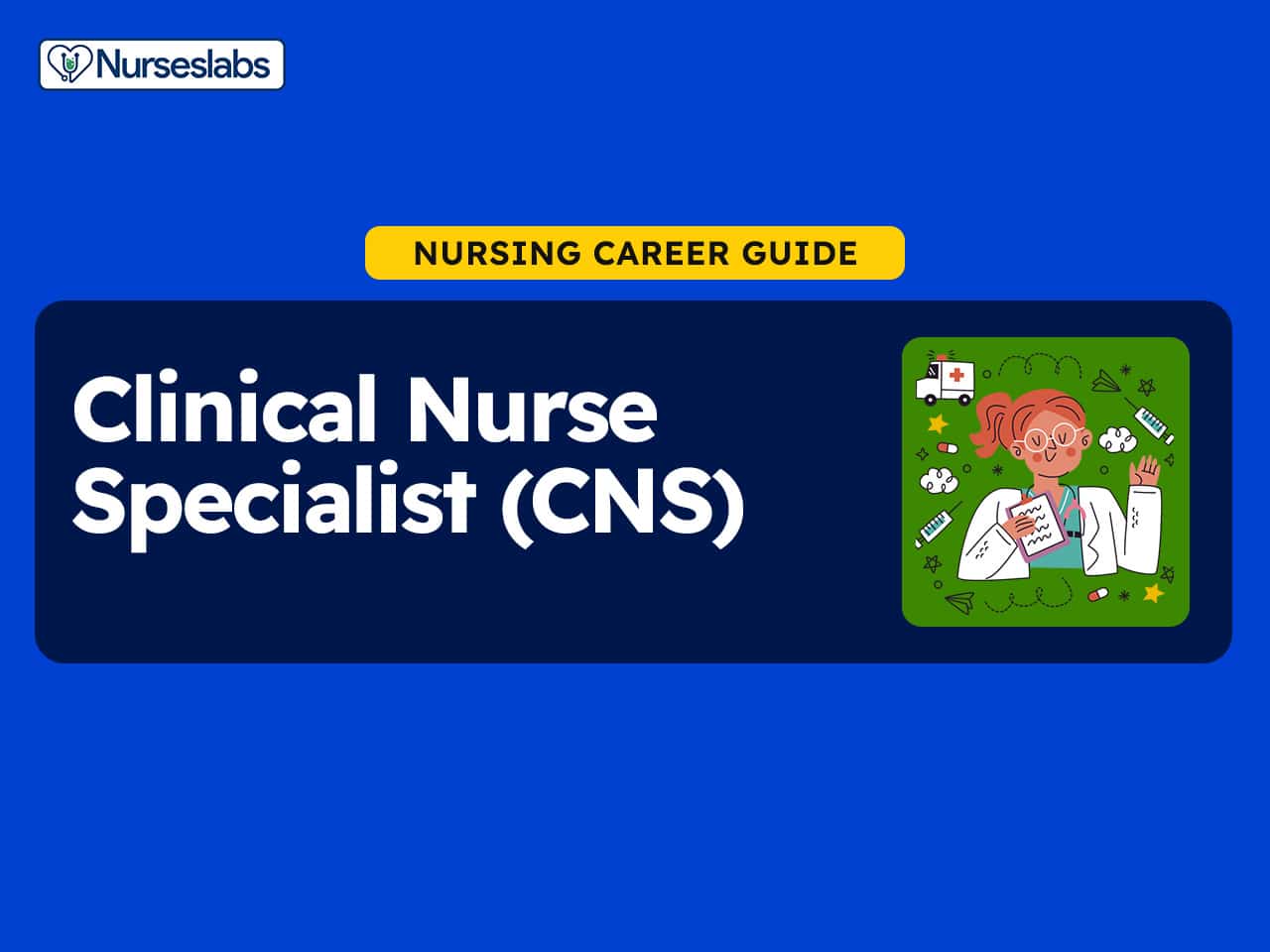
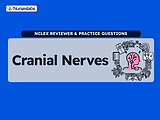

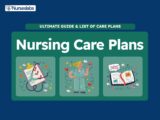

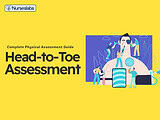
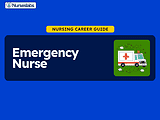
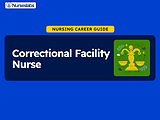
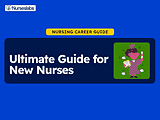
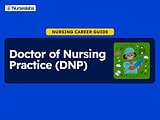


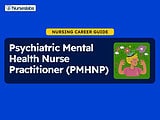
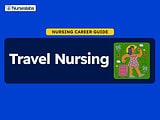
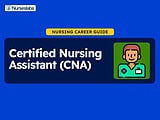

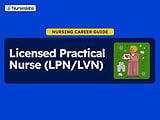

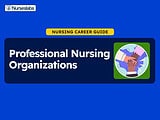
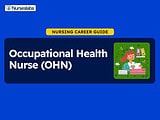







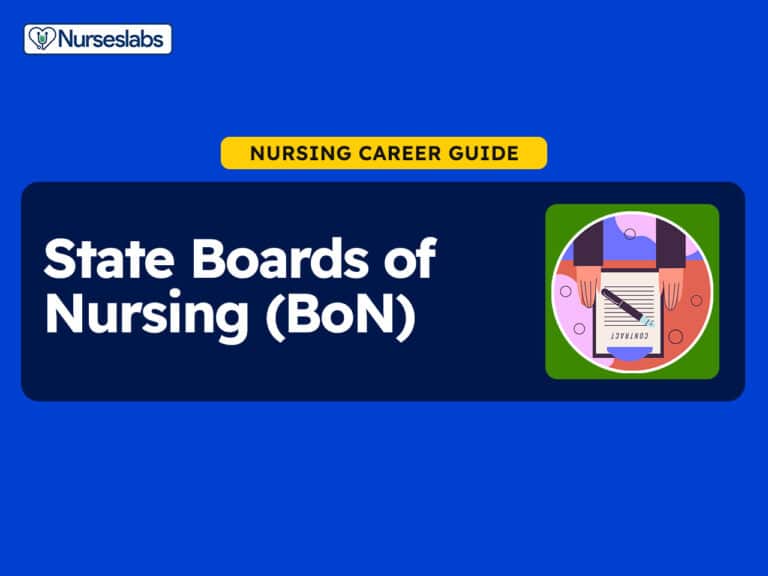
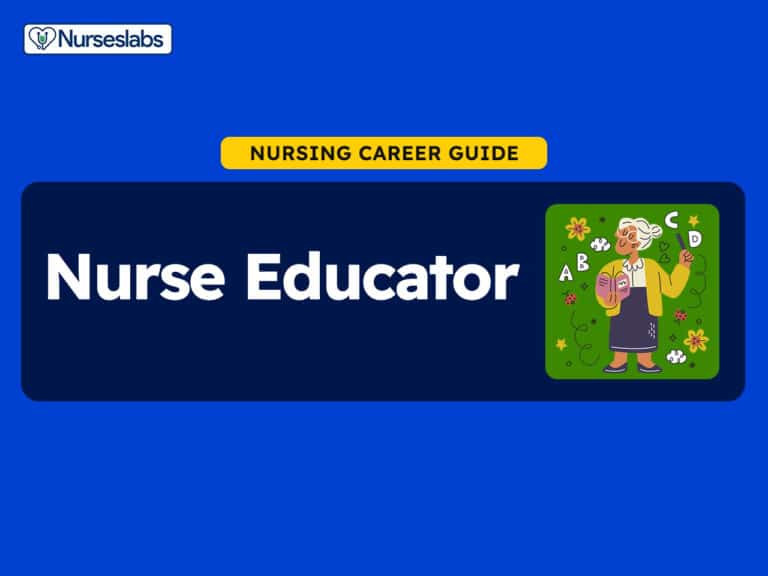

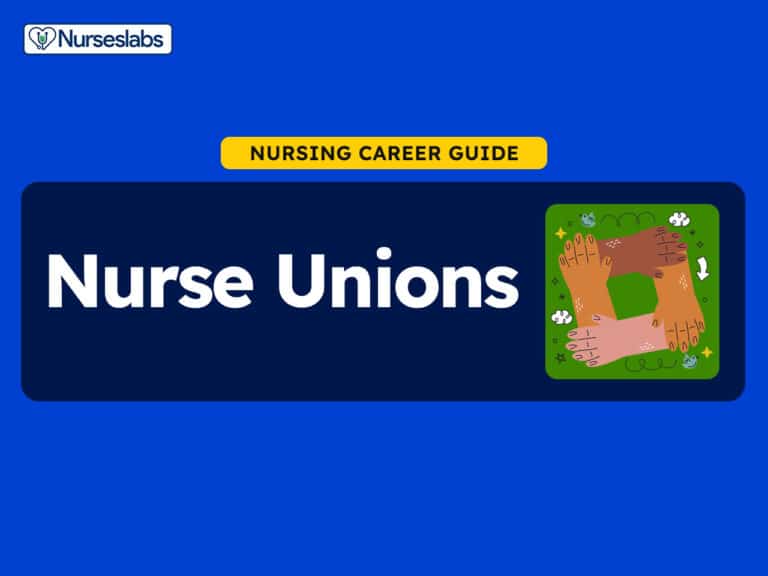
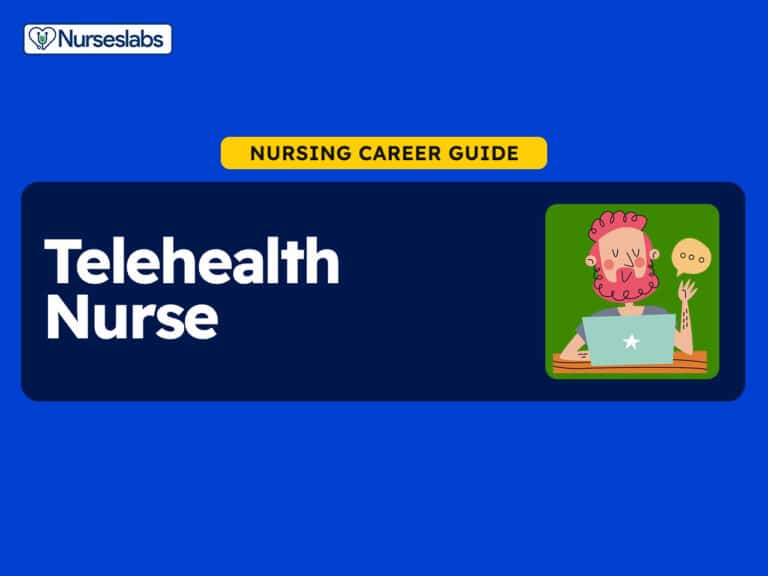
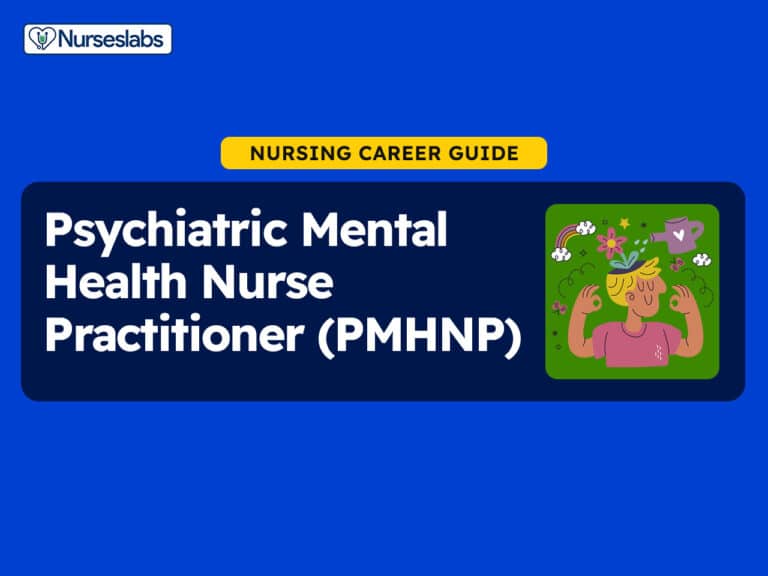
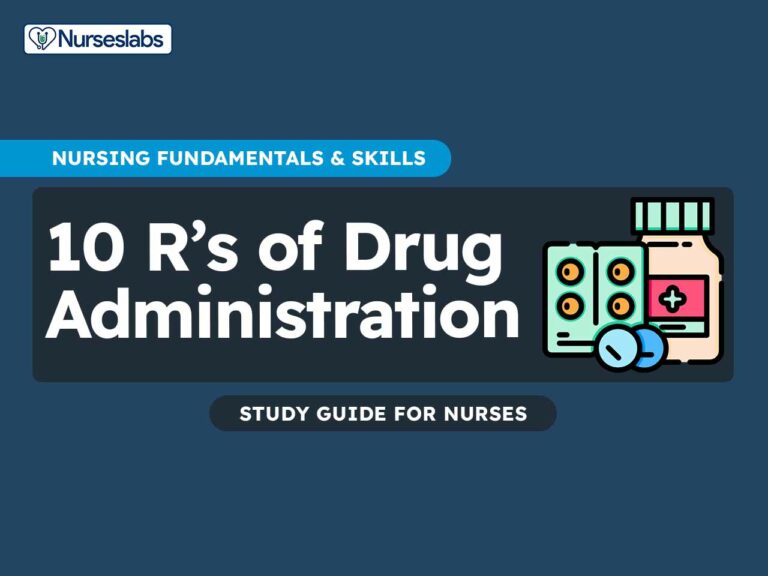

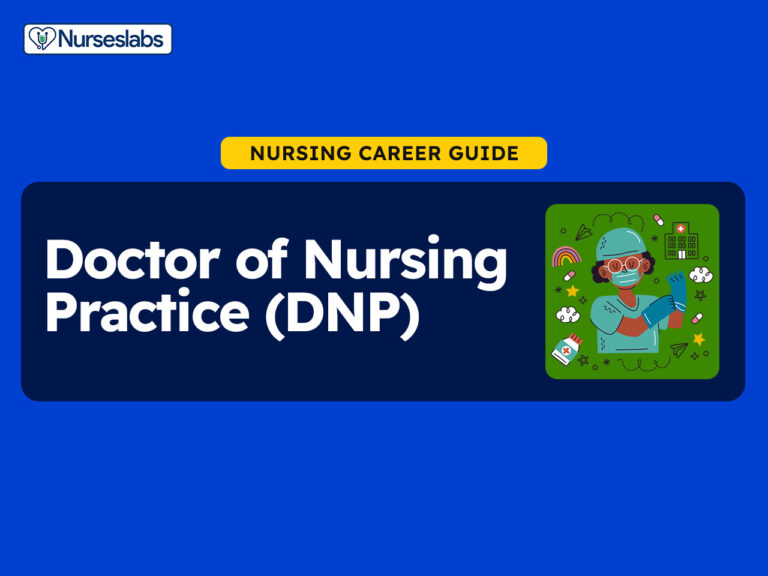
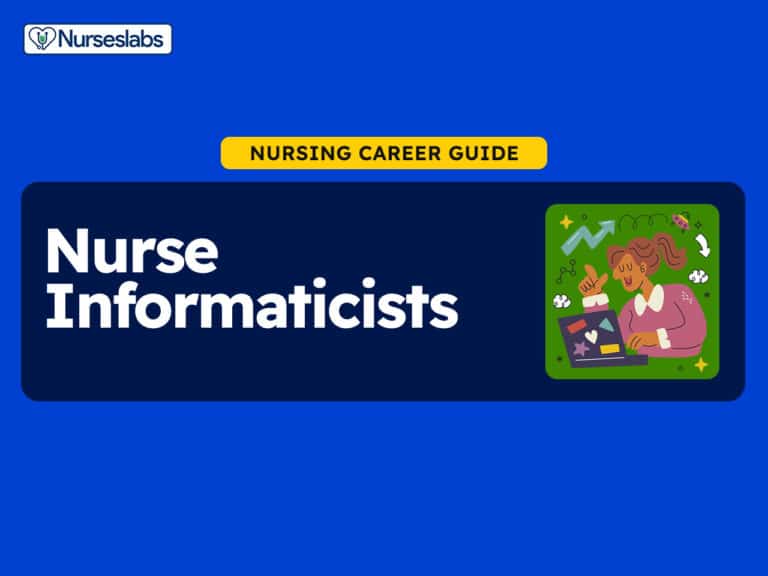
Leave a Comment